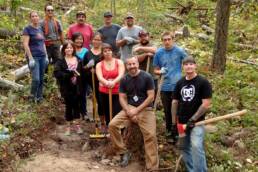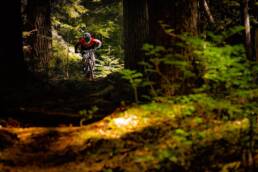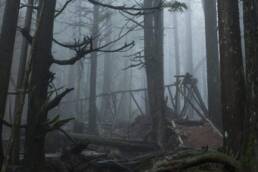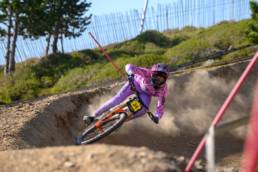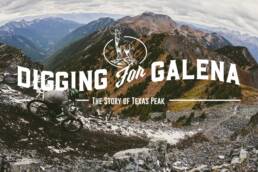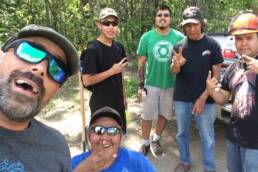Patrick Lucas is the founder of British Columbia’s Aboriginal Youth Mountain Bike Program, which we are huge fans of. This is the first in a series by him about the importance of this ground-breaking program.
I’m staring down a trail, a steep slope riven with an incomprehensible tangle of roots and jagged rocks, with one thought looping through my mind: how the hell am I supposed to do this? Down below, my riding companion, Thomas Schoen, calls back up to me, “Totally rideable! You just have to let go and ride through!” Right.
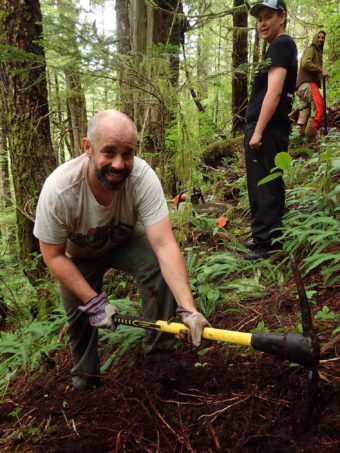 We’ve all experienced these moments when we have to make a decision, push ourselves beyond our comfort zone, testing our courage and our skill. We put ourselves through these experiences because they are necessary for us to become better riders, and ultimately, better human beings. And it’s true for everything we do, whether it’s overcoming the gnar or addressing other difficult issues in our lives.
We’ve all experienced these moments when we have to make a decision, push ourselves beyond our comfort zone, testing our courage and our skill. We put ourselves through these experiences because they are necessary for us to become better riders, and ultimately, better human beings. And it’s true for everything we do, whether it’s overcoming the gnar or addressing other difficult issues in our lives.
This all changed one day when an elder asked me a simple and unexpected question: What do you know about mountain biking?
“Our kids are riding,” he explained. “We can’t leave a pile of dirt without them building a jump out of it, but we see that they are outdoors, away from drugs, alcohol and video games. We want to build them a bike park. Can you help us?”
Of course, I said yes.
This experience inspired me to create the Aboriginal Youth Mountain Bike Program. Over the past five years, along with my friend Thomas Schoen, we have partnered with dozens of indigenous communities, working with youth to build trails, and supporting them to get outdoors, ride bikes, reconnect with nature and the land and living healthy active lives. A key element of our program has been working with both indigenous peoples and non-indigenous communities to ensure that the trails we build and love to ride acknowledge and respect their rights and title and role as the caretakers and stewards of the land.
[foogallery id=”13018″]
It’s been a challenging ride. I have been forced to reconsider everything I know about the province and country I call home, confronting difficult and uncomfortable truths about our shared history. I’ve been shown an entirely different vision of indigenous people and communities as survivors rather than victims and how we, as non-indigenous Canadians, can aspire to be allies and accomplices. That we can find our way through the tangles of our colonial history, build trails and ride together towards authentic reconciliation.
Allies (see above) is a short video highlighting our experiences, the lessons learned. We share our story in the hopes of inspiring others to take their own unsettling rides and strive to become allies to Indigenous peoples everywhere.
Related Stories
Whistler Mountain Bike Park to Expand Creekside Zone
Whistler Mountain Bike Park has just confirmed it will be adding 15 kilometres of new trail to its Creekside Zone by…
An Ode To Mountain Bike Stunts
Back in the era of teeters, skinnies and rickety ramps galore, mountain-bike stunts defined the sport's bombast and…
The DH Mountain Bike World Cup As Seen Through The Lens Of A Kootenay Photographer
Canadians dominated the junior ranks at the DH Mountain Bike World Cup in Andorra this July. Kootenay photographer…
Digging For Galena Mountain Bike Video Drops Today
The new Digging For Galena mountain bike film featuring Graham Agassiz lands today. We check in with writer/director…
How Mountain Bike Trails Are Changing The First Nations Experience
Patrick Lucas, the founder of British Columbia's Aboriginal Youth Mountain Bike Program, was recently in northern…


